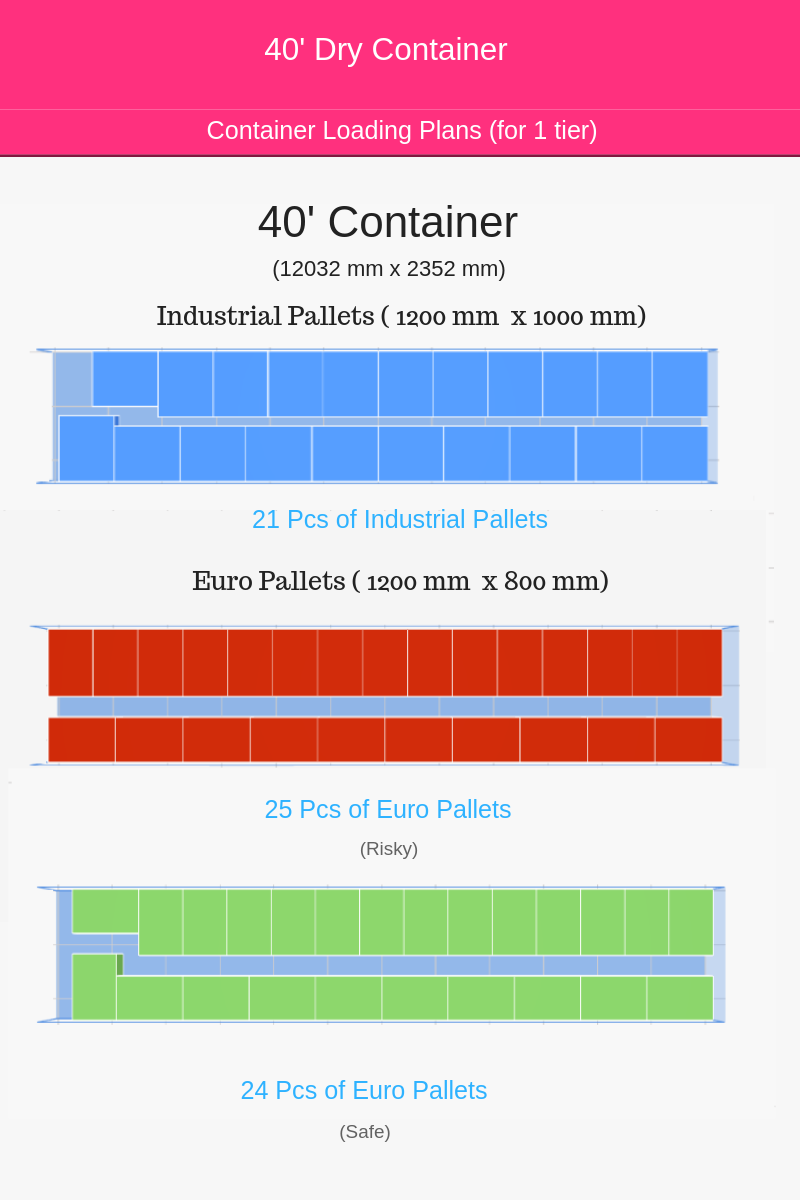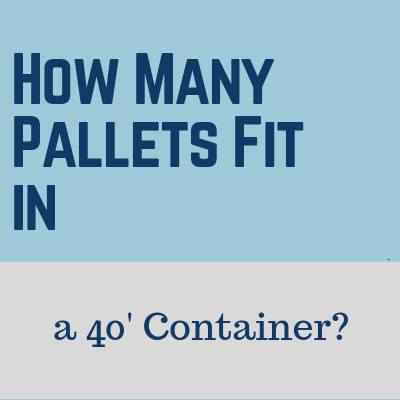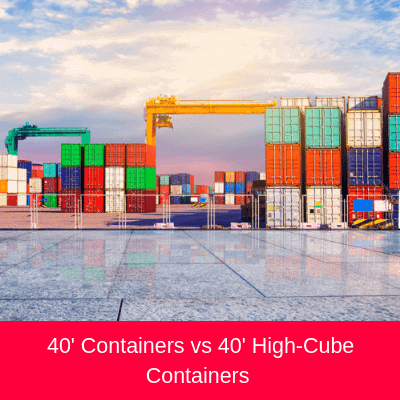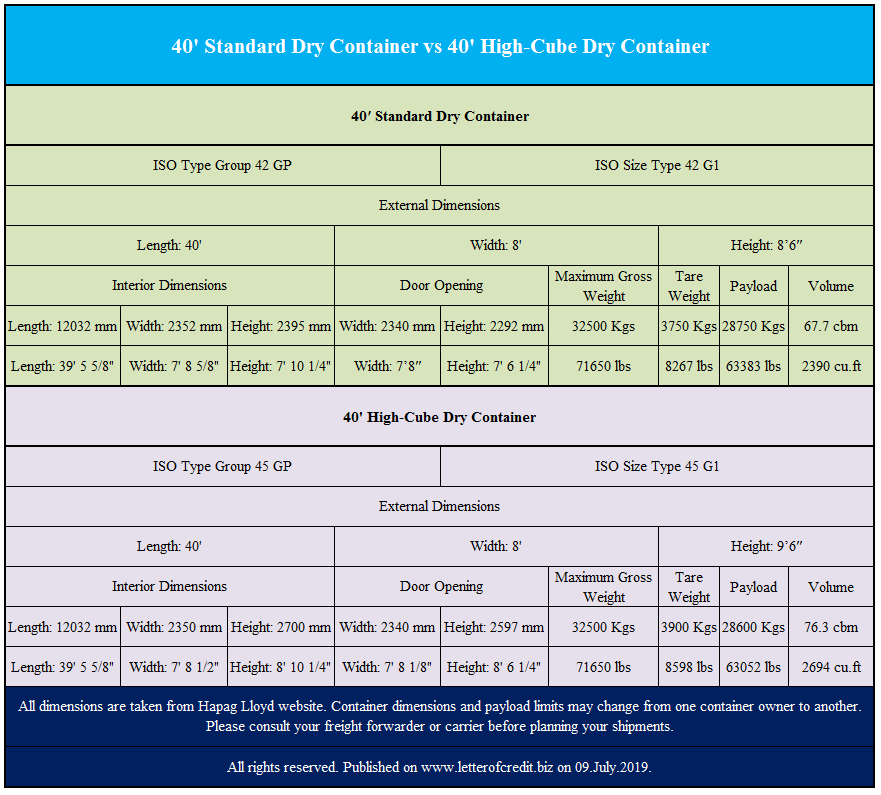Containers are the main Cargo Transport Units (CTU) in international transportation. They are used to carry Unit Loads (ULD) safely and securely.
The most widely used Unit Loads in international transportation are pallets.
Euro pallets (1200 mm x 800 mm) and Industrial Pallets (1200 mm x 1000 mm) are two most frequently used pallets in international transportation.
A 40′ container is one of the most frequently used container type in international logistics with the following interior dimensions: Length: 12032 mm, Width: 2352 mm and Height: 2395 mm.
On this post I will explain how many Euro pallets (1200 mm x 800 mm) and Industrial Pallets (1200 mm x 1000 mm) fit in to a 40′ standard dry container.

As it is shown on the above figure it is possible to fit 21 pcs of industrial pallets and 24/25 pcs of euro pallets in to a 40′ standard dry container.
Important Note: 25 euro pallet stuffing plan shows maximum amount of pallets that can be fitted in to a 40′ container by disregarding container deformations and safety gap that must be left between each pallet. 24 euro pallet stuffing plan is a safer one.


 It is possible to load more goods into a 40′ standard high-cube container if the goods do not pass the allowed payload limit. Because the payload limit of a 40′ standard high-cube container is slightly less than a 40′ standard dry container.
It is possible to load more goods into a 40′ standard high-cube container if the goods do not pass the allowed payload limit. Because the payload limit of a 40′ standard high-cube container is slightly less than a 40′ standard dry container.